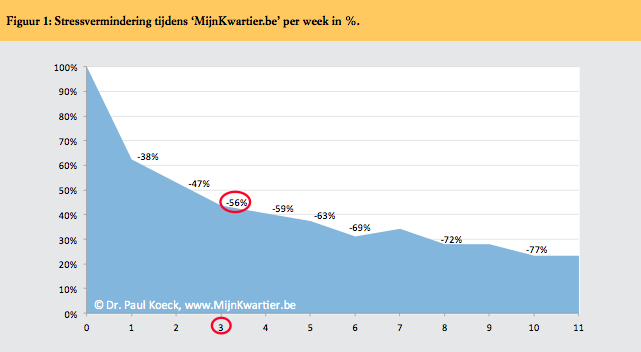Doubt and waiting times
Of all those who are told by their doctor to try psychotherapy, only a few take that step, doctor Koeck knows: "In the morning I got op, and saw that someone had signed up for '15 Minutes 4 Me' that night at 4 o'clock in the morning. That is the typical profile of a patient who gets a hyperventilation attack and thinks: tomorrow I will call a doctor. Because of some reason or another, many people do not dare to take that step the next day." A reason why people do not look for help might be that they do not like to talk, while this is something which has to be done during a face-to-face consult. Some are scared that they will have to uncover their sexual abuse throughout the therapy. Furthermore, patients in centers for mental healthcare sometimes are looking at waiting lists which are several months in length. With '15 Minutes 4 Me' they can take some steps while waiting, so that their issues is partially soled by the time their consult arrives.
A new therapeutic class
The step-reducing effect of self-help programs is also shown in the sexes. It is well-known: at consult psychotherapy, most patients are women. This is als true for '15 Minutes 4 Me', but there are, relatively speaking, more men who look at the program. This confirms that which Paul Koeck saw in international circles: those who make audio programs for self-help found that their instruments alter the sex-ratio for the group reached toward more men.
[caption id="attachment_10643" align="alignnone" width="641"] Figure 1: Stress reduction during '15 Minutes 4 Me' per week in %.[/caption]
Figure 1: Stress reduction during '15 Minutes 4 Me' per week in %.[/caption]
New applications come up
Participants get the non-binding advice from '15 Minutes 4 Me' to talk about their results with their doctor, so that other options can be present in case the self-help program alone is not enough. To discuss their progress with the doctor, graphs are given by the program, which make it possible to show the patient's results really easily. "The graphs have led to new applications", Koeck, MD, says. "We see, first of all, that the doctor definitely uses this material as a tool to see how the patient is doing. But patients who are on sick leave due to their illness, also take the graphs to their control doctor. This makes it possible for some people to show their employer that they are actually working on their situation."















